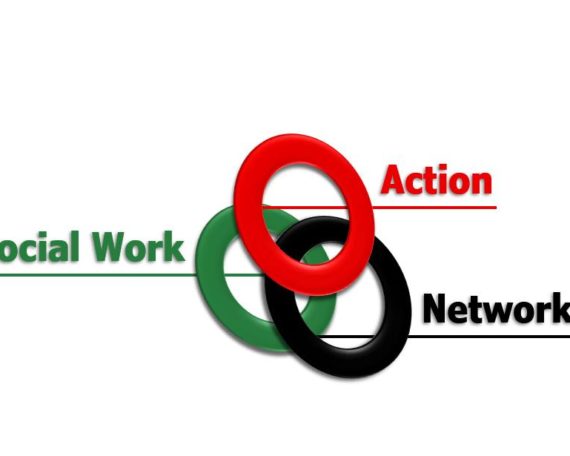A key problem for looked after children is the lack of continuity in their relationship with the local authority social worker… This lack of a continuous personal relationship also creates problems for social workers themselves… [who] enter their work with a strong moral purpose, idealism, energy and enthusiasm. However, once into the job, they often feel de-motivated, overwhelmed by bureaucracy and deprived of autonomy… Current organizational structures also have other problems, especially a lack of incentives for efficiency and innovation.
SWPs were proposed as the solution to these challenges, and the Children and Young Person’s Act 2008 provided the new legal framework, enabling local authorities in England and Wales to discharge (i.e. privatize) the ‘corporate parenting’ function of social work services for children in their care. The case for SWPs rests on three key arguments advanced by Professor Julian Le Grand, an education advisor to the Conservative Party. First, he argues, SWPs will provide a level of consistent corporate parenting expressed in the personal relationship between the child and their social worker. Second, workers demoralised by bureaucracy would be attracted to a ‘professional partnership’ governance model akin to a General Medical Practice or small firm of lawyers. Third, social workers would be motivated by a sense of professional autonomy and owner control of their partnership organisation. Three models for SWPs are suggested: a ‘professional practice’ (social enterprise) run by a partnership of social workers legally independent of the local authority, a ‘third sector’ (not for profit) model run by a voluntary organisation and a private sector (for profit) model.
 Six pilot SWP schemes were due to be in place by the end 2009 — although one of these was put on hold as the local authority felt there were too many financial risks. The intention was a three-year period to test the various SWP models and, depending on the outcome, the preferred model would be pushed out across England and Wales from 2012 onwards.
Six pilot SWP schemes were due to be in place by the end 2009 — although one of these was put on hold as the local authority felt there were too many financial risks. The intention was a three-year period to test the various SWP models and, depending on the outcome, the preferred model would be pushed out across England and Wales from 2012 onwards.
Here in the West Midlands two councils, Staffordshire and Sandwell, signed up to the pilot scheme. In the latter, the Sandwell Child Care Co-operative (SCCC) won the contract to take over social work services for 100 children in 2009. This organisation claimed to be a ‘non profit making company… that would ensure common ownership between directors and staff, with social worker employees having a numerical dominance on the Board’. This cooperative is a pioneer of the Con-Dem Coalition’s ‘small state/big society’ social enterprise adventure. It is also an example of how oppositional ideas such as common ownership and the cooperative movement can be incorporated in a neo-liberal project. As theorist Raymond Williams wrote in the late 1960s in his brilliant analysis of the role of culture and hegemony, ‘the decisive hegemonic function is to control or transform or even incorporate alternatives and opposition’. Williams’ ideas can be applied to many of the events now taking place around the development of the SWP pilots.
A regional SWAN conference held in March 2010 agreed to campaign against private social work practices. Following this, the regional steering group issued a challenge to SCCC in the form of an open letter. Our statement argued ‘there is no evidence that social workers are frustrated entrepreneurs who need a profit motive or a bonus to do their best for children’ and that social work practices are a sort of ‘human asset stripping’ from local authorities. We called on social workers not to volunteer if given the option of whether to work for SCCC. We copied our statement to over 300 email contacts, regional SWAN members, local trade union branches, and the social work print media as part of our modest but very public attempt to confront SCCC.
The founder of SCCC Laurie Gregory responded by issuing his own statement. Gregory said: ‘I actually believe the Co-operative approach is an imaginative socialist one for the purposes of social care provision and feel much regret that the Co-operative movement has been asleep for the last 20 years during which billions of pounds have been outsourced, mostly to “profit making” organisations’. He added ‘early in negotiations, it became apparent that no social workers were transferring from Sandwell MBC to the pilot because of the very high proportion of unqualified staff and the level of agency staff [there] who would not have rights to transfer with TUPE protection. All posts within the project were geared to Local Government levels of pay with an emphasis on seeking qualified and experienced social workers who would be paid at a Senior Practitioner rate. It did not appear to us that we were “human asset stripping” from Sandwell MBC for the reasons mentioned above, but appealing for staff across the West Midlands Region to join the pilot for a period of 3-4 years’.
As part of our regional SWAN strategy we also issued several press statements in support of the local UNISON branch that had vowed to boycott the scheme. These were carried by publications such as Children and Young People Now. The local UNISON branch also distributed the union’s national leaflet to social work teams in Sandwell. UNISON activists reported that many social workers saw straight away that SWPs were nothing but a privatisation scam. Furthermore, contrary to the claims made by SCCC, social work teams in Sandwell were not made up of agency staff. The Council and SCCC did not anticipate such resistance and, against their expectations, failed to persuade any of Sandwell’s social workers to join the cooperative.
The council’s plans were then dealt a decisive blow when a disastrous OFSTED inspection of children’s services in Sandwell in February found that the children affected by the SWP had not been consulted about the sell-off. UNISON told us that foster carers were also angry that they had been given no notice that the transfer was going to happen. The SWP pilot was put on hold and abandoned altogether in August 2010. A small victory!
Whilst SWAN cannot claim credit for the collapse of the pilot- which was down to the UNISON branch and Sandwell social workers with a little unexpected help from OFSTED – SWAN certainly played a part in the war of position that developed on the web and in the national media coverage of the issue. This shows that, despite our modest resources, SWAN can and should play a key role in the ideological battle against privatisation and neo-liberalism at local and regional level. Of the 6 pilots originally planned across the country, only 4 now remain.
SWAN West Midlands have produced a pamphlet ‘Independent Social Work Practices: A Midlands Social Work Action Network briefing’ containing background history and further resources. Download a copy from the bottom of this page.

